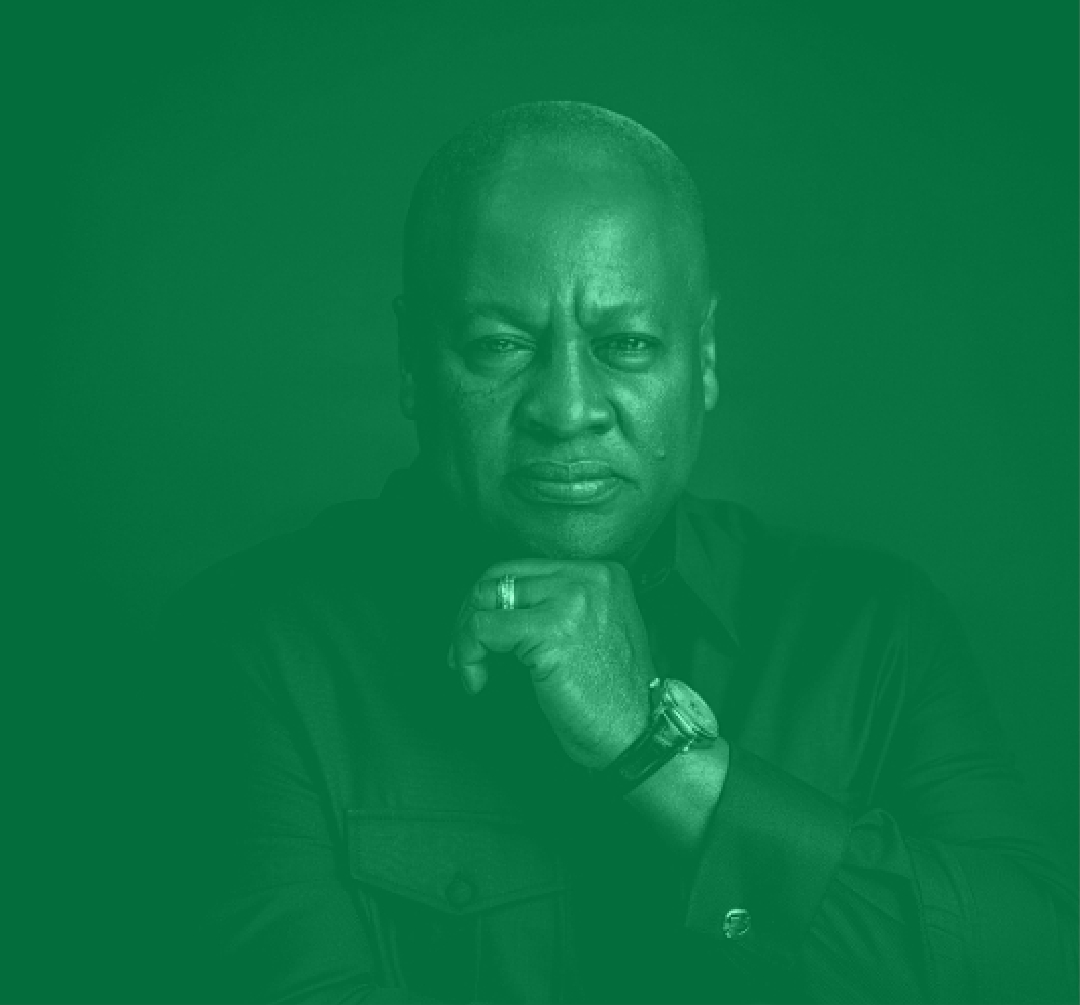
John Dramani Mahama was born on the 29th of November 1958 in Damongo, the then capital of the West Gonja District of the Northern Region. His father, Emmanuel Adama Mahama, a prominent rice farmer was a Member of Parliament for the West Gonja Constituency and the first Regional Commissioner of the Northern Region under Ghana’s first leader, President Kwame Nkrumah.
John Mahama spent the first years of his life with his mother, Abiba Nnaba, in Damongo, before moving to Accra to live with his father, who imbued him with a strong passion for education. He received his basic education at Achimota Basic School, where he began defending other children from bullies, and later moved to the Ghana Secondary School in Tamale.
He will later gain admission into the country’s premier university, the University of Ghana, in Legon, receiving a Bachelor of Arts degree in history in 1981. After his BA degree, John Mahama moved back to Tamale, where he taught history at Ghana Secondary School. However, the political and economic situation in Ghana forced him to flee to Nigeria, where he rejoined his father who was in exile.
In 1983 he came back, with a strong desire to build bridges between people through communication, so he enrolled in a post-graduate programme in Communication Studies at the University of Ghana.
He graduated in 1986 and then went to Moscow, in the former Soviet Union, to the Institute of Social Sciences, where he received a post-graduate degree in Social Psychology in 1988. While in Moscow, he noted the imperfections of the Socialist System and came to the realization that each nation had to find it's own transformative way, away from ideological dogmas.
1996 marked the year John Dramani Mahama entered Ghanaian politics. He joined the National Democratic Congress (NDC) and, being an eloquent champion of the underprivileged, he was elected to the Parliament of Ghana to represent the Bole- Bamboi Constituency for a four-year term. He was re-elected in the elections of 2000 and 2004.
During this time, he was appointed a Deputy Minister for Communications in 1997, became Minister for Communications from 1998 until 2001.
Minority Parliamentary Spokesman for Communications from 2001 until 2005
Minority Parliamentary Spokesman for Communications from 2005 until 2008.
Mr. Mahama was nominated as running mate to Professor John Evans Atta Mills in 2008 becoming Vice President of Ghana in 2009.
In July 2012, he succeeded his boss, President John Evans Atta Mills, who passed away on July 24, 2012 and elected in December 2012 as President of Ghana for his first four-year term. He thus made political history by becoming the first Ghanaian head of state to have been born after Ghana's declaration of independence on 6th March, 1957.
While serving as Minister for Communications, John Mahama was also the Chairman of the National Communications Authority, and played a key role in the stabilization and transformation of Ghana's telecom sector.
During his Presidency, Ghana witnessed important transformations, the most important of which was the building of a more vibrant democracy. In 2012, Ghana's score in the Democracy Index was 6.02, being ranked 78th in the world. In 2016, when he left office, Ghana's score was 6.75, placing it as 54th in the world - and making it the 5th most democratic country in Africa. During his entire life and throughout his political career, John Mahama has been a champion of the underprivileged, a unifier, moving above tribal politics; a strong supporter of public education for all; and a visionary, seeking to transform Ghana in fundamental ways.
Also under his Presidency, Ghana's ranking regarding the equality between men and women rose from 71st in the world in 2012 to 59th in the world in 2016.
Equally important, under President Mahama, Ghana's ranking when it comes to the freedom of the press rose from 41st in 2012 to 26th in 2016, turning Ghana into a world champion of the free press. Unemployment fell from 3.6% in 2012, to 2.3% in 2016. The coefficient of human inequality decreased from 31.9 in 2012, to 28.8 in 2016. Inequality in education fell from 40.9% in 2012, to 34.9% in 2016.
All in all, John Mahama's Presidency was a truly transformational one.
His book, ‘My First Coup d’État and Other True Stories From the Lost Decades of Africa’, published in July 2012, has won international praise for describing a world of love, fear, faith, despair, loss, longing, and hope despite all else.
He recalls in its first chapter the day in 1966 when he learned of the ousting of Ghana's founding president, Kwame Nkrumah, in a military coup: "When I look back on my life it's clear to me that this moment marked the awakening of my consciousness. It changed my life and influenced all the moments that followed.
He has also written essays, which have been published in the Ebony, Huffington Post, the New York Times and The Root.
Our mission will not be complete until poverty is eradicated in our country, Ghana, until every child has access to quality and free education, until Ghanaian girls and women are genuinely empowered, until all Ghanaians are truly equal under the law, and until all of us live a meaningful life within an inclusive community.